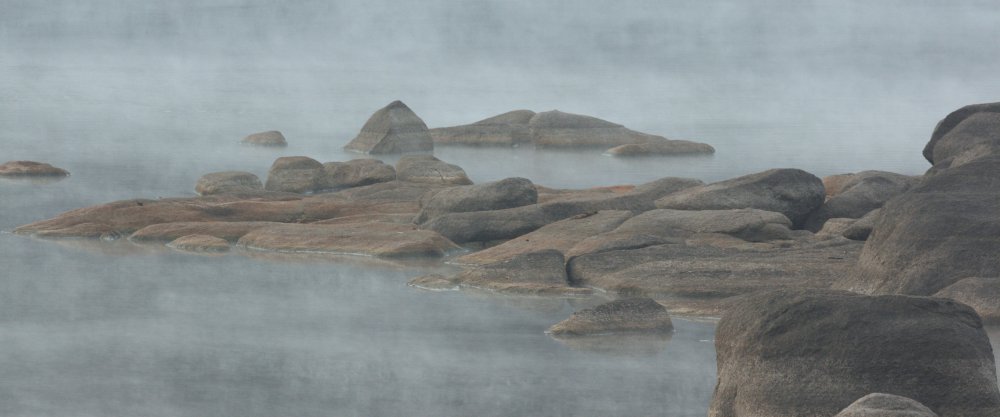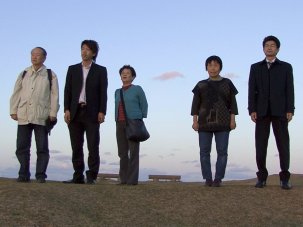There is a story told around ten minutes into Tolin Alexander, Lonnie van Brummelen and Siebren de Haan’s documentary Stones Have Laws that encapsulates what makes it such compelling viewing. In Suriname, a Maroon man – a descendant of African former slaves – tells the story of how Forefather Lanu fled a plantation in the “time of slavery” and set out into the forest, where he founded a new community with the help of indigenous locals.
The Netherlands 2018
Certificate 15 109m 8s
Directors Tolin Alexander, Lonnie van Brummelen, Siebren de Haan
[2.35:1]
Subtitles
UK release date 9 August 2019
Distributor ICA Films
ica.art/films/stones-have-laws
► Trailer
The story is in one sense a fascinating ethnographic artefact, presenting an apparent historical incident transformed into a foundation myth as epic and inspiring as the story of Romulus and Remus. In another sense, the sequence acts as a narrative introduction to the animistic qualities and supernatural interactions of the Maroon belief systems. Finally, the telling of the story adopts a position in collaboration with the documentary’s subjects, who worked closely with the filmmakers to shape what would be shown and seen.
This methodology is similar to that employed by van Brummelen and de Haan in their 2014 mid-length feature Episode of the Sea [► trailer], which involved intimate collaboration with the inhabitants of the Dutch fishing village of Urk. In both cases, the filmmakers conducted lengthy interviews with the communities before consulting them throughout the formulation of script and structure.

Such collaboration – and, in this instance, the implications of Dutch directors filming Maroons in a former colony – is addressed explicitly at the outset here. The camera pans across a serene and verdant landscape of forest and river before resting on a group of tribal elders discussing the potential project. Some are wary (“They may be fooling us”) but they communally decide that what they choose to share might help to generate awareness of the plight of their forest home.
They agree to consult their ancestors for guidance as to how much of their inherited knowledge they are permitted to reveal. “I don’t like: ‘That’s what I’ve heard,’” explains one woman, “I do like: ‘This is what I myself have seen.’” History, counters another man, is mostly a case of “I have heard.” However, through collective authoring and by blending the telling of traditional stories into more typically observational ethnographic documentary practices, Stones Have Laws feels like a genuine attempt to honour the Maroon way of passing knowledge.

In the same vein, the filmmakers have experience of working in the landscape documentary form, which positions them perfectly to express the Maroons’ animism through their imagery. Interspersed between and throughout the chapters are shots of rain falling in the forest, rivulets running across rocks, leaves gently blowing. The more stories are subsequently told about the gods speaking through the wind in the trees, the more these external forces seem to manifest. Later in the film, there is a progression to roving Steadicam shots of forest paths, which prompts an irresistible feeling that the camera has been picked up by Wamba, the forest spirit who guided Forefather Lanu on his original exodus journey.
This all creates an entwined sense of people and environment – and the threats faced by both. The Maroons must nowadays navigate dams and mines that consume and erode their land and their way of life, but the gods also warn them of a great sea rising. As someone describes the ramifications of cities forgetting how to listen to the laws of the stones and the trees, it crystallises just how very far from localised and anachronistic their concerns are.
Stones Have Laws trailer
The trailer for Stones Have Laws’s UK premiere at Frames of Representation festival
-
Sight & Sound: the September 2019 issue

Quentin Tarantino on the genesis of Once Upon a Time… in Hollywood. Plus Sharon Tate, Pedro Almodóvar on Pain and Glory, Christian Petzold on...
-
The Digital Edition and Archive quick link
Log in here to your digital edition and archive subscription, take a look at the packages on offer and buy a subscription.















